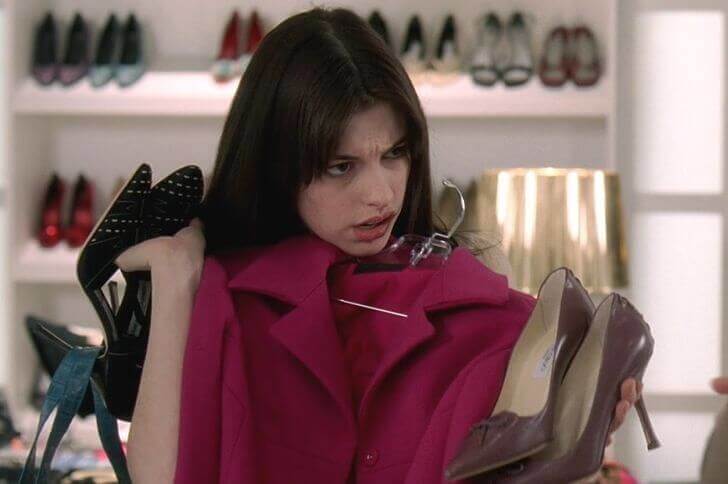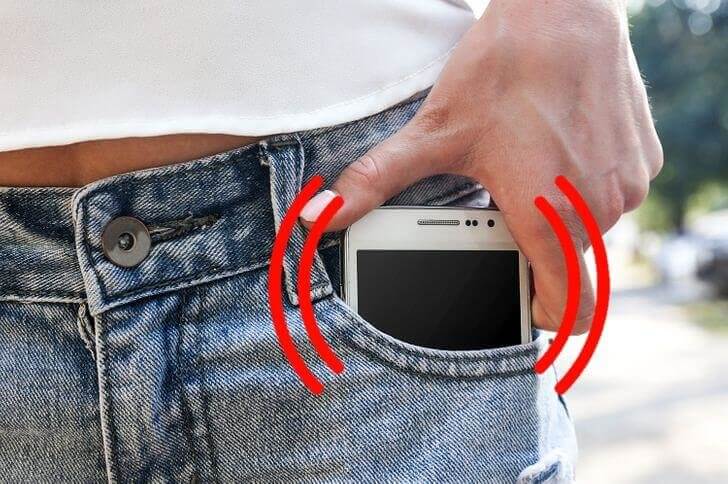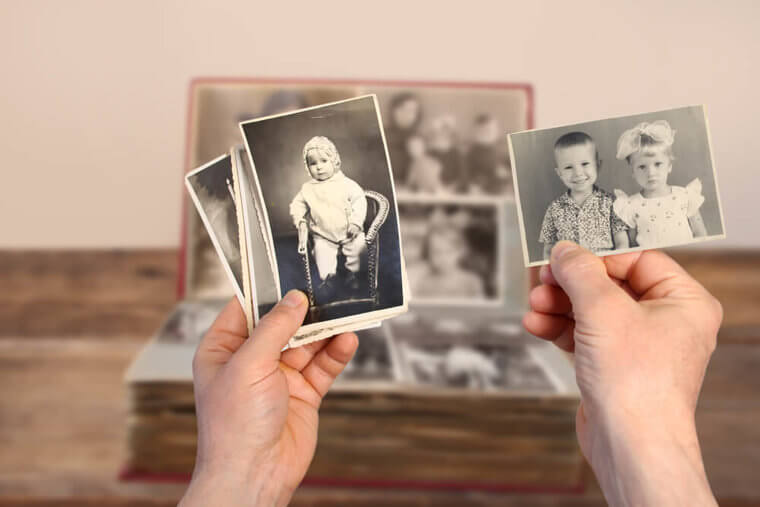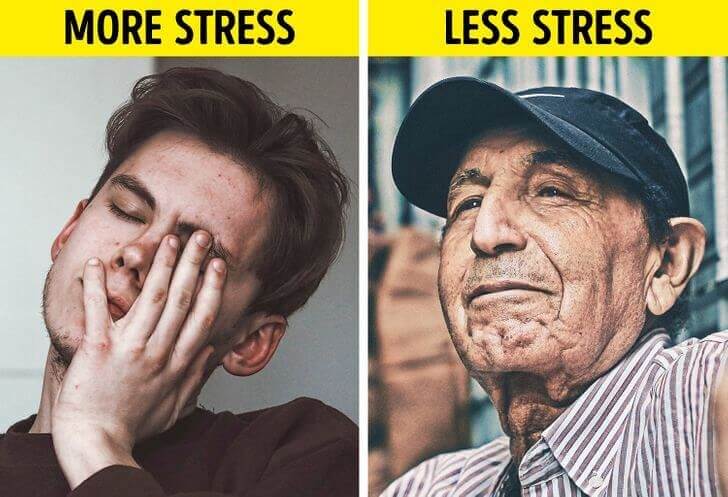1. We Can Only Remember 3 Or 4 Things At A Time
This might be surprising to some people, but your brain can only remember three to four things at a time for about 20 seconds, and then they disappear from your memory unless you repeat them over and over. So it's no surprise we forget things at the store all the time.
For example, if you are driving and having a conversation with someone, and they give you a number to call, but you can't write it down, you probably won't be able to remember it unless you repeat it to yourself. Numbers with over four digits are harder to remember for more than 20 seconds.
2. Rejection Can Turn Into Physical Pain
If you have ever been broken up with or rejected, you probably felt not only emotionally hurt but physically hurt as well. Although the brain doesn't process physical and emotional pain the same way, the reaction and following events are very similar, and a natural chemical is released during both events.

For example, when you feel physical pain, natural painkiller mu-opioid is released in the brain so the significance of pain is lessened. That same experience occurs when people feel rejected or insulted.
3. Most Things We Worry About Never Happen
Have you ever let your imagination wander, and you start picturing all the bad things that can go wrong? Even though you think that bad things will happen, 85 percent of the things you worry about probably won't occur.
In one study, people were asked to write down all their worries over an extended period, and most of those things ended up not happening. In fact, only 15 percent of the things they wrote down actually happened.
4. Being Stable In Life Shuts Down Your Brain's Learning Center
Remember in Legally Blonde when Elle's world is turned upside down after her boyfriend breaks up with her, ruins her life plan, and then she somehow becomes smart enough to get into Harvard Law School? Well, there might be some science behind why she was able to learn so much in a short period.
Scientists confirmed that your brain's learning centers are turned on and alert when your life is unstable. If you stay in your comfort zone, you are probably not learning. To maximize learning, you need to make sure you are doing things that are outside your comfort zone for 70 percent of the time.
5. Being Forgetful Is A Sign Of Intelligence
Having a good memory seems like it would be a strong asset that would make a person more intelligent. For example, if you can remember information well, you probably get good grades. However, contrary to popular belief, forgetfulness is a sign of higher intelligence.
Forgetfulness keeps the brain from wasting space and energy on unimportant things. The goal of memory is to optimize decision-making. Therefore, the brain needs to forget irrelevant information to focus on the stuff that will help it make decisions in the real world.
6. Your Phobias Can Be Passed Down Through Genetics
If you are afraid of spiders or heights, you might be able to thank your ancestors for those phobias. Scientific research has shown that phobias are probably genetic memories passed down over generations. While memories are learned experiences built throughout a lifetime, evidence has shown that they can be inherited through chemical changes in DNA.
This means that you don't have to feel bad about being afraid of going in the ocean or having a clown come to your birthday party because someone else in your family tree started the fear and unknowingly passed it down to you.
7. More Choices Means A Harder Decision
Although it might seem like having more choices equals an easier decision, this is false. In a book called "Paradox of Choice," experts explained that having too many choices creates negative feelings. It eventually turns into the point that people feel like they lost the freedom to choose.
This has to do with the fact that our brains can only focus on three or four things. Therefore, having a limited number of choices makes it easier for our brains to focus and come to a final decision. Despite craving variety, it doesn't help our decision-making process.
8. We Turn The Volume Down When Driving In New Places
If you have ever turned the volume down in a parking lot while looking for a spot because you thought it would help you see better, there is an explanation for this. When our brains are focused on listening, we are less aware of visual information.
It is instinctual to eliminate noise distractions so our brains can focus harder on the visual information going to our brains. If you are driving in a new place, it is perfectly normal to turn off the music or stop talking to the passenger so you can focus on finding your destination.
9. The Happier You Are, The Less Sleep You Need
When life is going well, do you find yourself getting less sleep than when you are sad? As it turns out, there is a correlation between sleep and emotions. Happy people get around 7.1 hours of sleep per night because sadness increases your need to sleep.
We are not saying sleep-deprived people are happier, but happiness makes you want to sleep less. Maybe happy people are more excited to spend their days doing productive things rather than sleeping.
10. There's No Such Thing As Multitasking
Believe it or not, there is no such thing as multitasking. Multiple studies have confirmed that true multitasking—doing more than one task simultaneously—is a myth. People who think they can split their attention between multiple tasks at once aren't actually getting more done.
There is one exception to this rule. If one task is purely physical and automatic, then you can combine different tasks. An excellent example of this is talking on the phone and walking, even though you can lose track of where you are going or lose track of the conversation.
11. Strong Emotions Can Create False Memories
Our memory is a fragile power because we can forget things, and it is not always as accurate as we want to believe. We are susceptible to errors, and some suggestions can trigger false memories. Strong emotions play a big role in this.
Sometimes, strong emotions can make an experience more memorable. However, they can sometimes lead to mistaken or untrustworthy memories as well. People are more likely to remember an event connected to strong emotions, but the details of the memory are often fuzzy.
12. Men Prefer Not To Ask For Directions
It's no secret that there is a stereotype about men refusing to ask for directions. However, psychology can give us some insight into that. In a recent survey, only six percent of men said they would ask a stranger for directions if they were lost.
In that same study, it was found that men travel an extra 900 miles within 50 years because they refuse to ask for help. This is because they don't want to feel incompetent, vulnerable, or humiliated when they know they are lost.
13. People Reveal More When They Are Tired
When you are physically tired, you tend to be more sentimental with your words. That is why it is normal for people to confess things in late-night conversations. It is also easier for people to lie in the afternoon because they have more self-control.
If you are trying to keep a secret from someone, it is better to refrain from long late-night chats. At different points in the day, moral awareness fluctuates, making you more or less likely to share truthful information.
14. Buying Gifts For People Makes You Happier
Have you ever bought something for another person and it made you feel all warm and fuzzy inside? While earning money also contributes to happiness, how you spend it is just as important. Spending money on other people can have more of a positive impact on your happiness than spending money on yourself.
In a study of people who were randomly assigned to spend money on others, they experienced greater happiness than those assigned to spend money on themselves. So if you want a mood booster, go out and buy your friend a present because it will make both of you feel good.
15. Good Liars Can Detect Other Liars
They say it takes one to know one, and that is true for liars. Neuroscience theories state that someone who can lie with ease is very good at detecting other people's lies. The key is that they understand what other people are thinking, which is what makes them so good at lying.
The ability to detect deception is just as important as the ability to deceive. This relies on the theory of mind, which is the ability to think about what someone else is thinking.
16. It Only Takes Four Minutes To Fall In Love
If you believe in love at first sight, you might be on to something. Researchers found that it takes between 90 seconds and four minutes to decide if we are attracted to another person. This mainly depends on body language and voice rather than what a person is actually saying.
As far as attraction goes, 55 percent is through body language, 38 percent is through the tone and speed of voice, and only 7 percent is through what we say. In one study, strangers were asked to reveal intimate details about their lives and then stare into each other's eyes for four minutes without talking. Many of these couples expressed feeling attracted to the other person afterward.
17. Most People Suffer From Phantom Vibration Syndrome
If you grew up with a mobile phone, you have probably experienced a time when you thought your phone was vibrating in your pocket, but it was actually on the other side of the room. This phenomenon is called Phantom Vibrations Syndrome.
About nine out of ten people suffer from this. It happens because our phones almost become part of our bodies, and we forget they're there. People usually perceive other sensations like the movement of clothing or muscle spasms as vibrations from their phones.
18. Chocolate Can Bring You More Happiness Than Being In Love
Who doesn't love chocolate? There is something about it that makes us beyond happy, and there is a psychological reason behind it. Scientists proved that chocolate is better than being in love. If you eat a bar of chocolate, it induces sensations that are greater in pleasure than your favorite music, winning the lottery, or falling in love.
Scientists at Cambridge carried out brain scans that suggest chocolate is linked to feelings of wellbeing because of the delicious taste. Combining the aroma, texture, and flavor makes eating chocolate a stimulating experience that activates areas of the brain associated with creating feelings of pleasure.
19. We Are Happier When We Are Busy
While it might seem like being busy would cause stress, a study found that people who keep busy are more likely to be happy than those who have a lot of free time. This is because our brains dislike being idle and prefer to stay busy.
Every time you complete a task, dopamine is released, which is the happy hormone. Having lots of things to do makes you feel like you have a purpose in life and people are happier when they feel like their life has meaning.
20. We Are Always Altering Our Memories
When we think of things we experienced in the past, our memories play out like small video clips in our heads. People usually think of memories as things that sit on a shelf in our brains that can't be altered, but every time we recall things, past events change.
The content of our brains is influenced by memory blackouts and things that take place in the more recent past. It's like opening a document on a computer; when you can edit the information, it is more vulnerable because it can be overwritten or deleted.
21. We Can Only Have A Limited Number Of Friends
While many of us have thousands of friends on Facebook, that doesn't mean we are actually close friends with those people. According to anthropologist Robin Dunbar, the so-called magic number of friends is 150. That still seems like a large amount.
This number is the people you would not feel embarrassed about joining uninvited for a drink if you happen to bump into them. So if you have friends who you see once a year or people message you on your birthday, they might be part of your limited friend group.
22. People Are More Stressed Between The Ages Of 18 And 33
It probably will come as no surprise that the most stressed-out group of people is between the ages of 18 and 33. Most people don't think they are managing stress well and have no support for stress management. Especially with the pandemic, this fact is truer than ever.
According to research, women felt more stress than men, and scientists found the stress levels start to reduce after 33. This generation is accumulating more student debt and earning less, so it is easy to understand why they are the most stressed group of people.
23. Our Visual Perception Of Things Is Different Than Their Actual Appearance
Every second, our brains are processing information received from sensory organs. It analyzes visual images and turns them into a form that we can understand. For instance, the reason we can read quickly is not that we are actually reading every letter.
Visually we notice the first and last letters of words, and our brains fill in the middle based on past experiences. So if a word has the correct first and last letter but the middle letters are jumbled, our brains will still read it because we know what the word should be.
24. 30 Percent Of Our Day Is Spent Day-Dreaming
Imagine you are sitting in school, and your mind starts to drift into la-la land. Suddenly, you realize everyone around you is reading the textbook, and you have no idea what is going on because you were daydreaming. Scientists have found that people spend 30 percent of their day with their heads in the clouds.
However, during long trips, the amount of time daydreaming increases to 70 percent. There is nothing wrong with letting your mind wander because it usually means you are a more creative person. Also, those who daydream are usually better at solving problems.
25. Most Of Our Decisions Are Unconscious
Everyone likes to believe that the things we do are a result of thought-out planning. However, 60 to 80 percent of our decisions are actually made subconsciously. Sometimes we don't think about things; we just do them.
Every second, our brains are working at hyper speed to process millions of units of data. Some things are pushed to the subconscious to prevent exhaustion, like taking our keys and turning off the lights when we leave home. The negative thing is that we tend to doubt ourselves, like if we forgot to turn off the iron or lock the door.
26. We Have To Gesture While Speaking
People have often made fun of Italian-Americans because they are known to speak with their hands. However, they are not the only ones. If your hands are not preoccupied during a conversation, they usually start to gesture, based on what you are saying.
Gesturing during a conversation is part of our evolution. Scientists traced how the neural networks in the brain help us use our hands while we speak and found that the social signals actually come from fish brains. This is why speech and gestures have evolutionary origins.
27. People Prefer To Park Near Other Cars Even In An Empty Lot
Do you ever get annoyed with people when they park right next to you in an almost empty parking lot? This behavior is explained by the fact that humans are social beings, and we tend to follow crowds in everyday situations.
A research assistant at Yale University found that people will follow others because they know that a product or service is tested. When a person parks next to you, they know that the area is good to park in.
28. Men Won't Use Neighboring Urinals
If you are a man or have male friends, you have probably heard them talk about how they feel weird when someone stands next to them in the bathroom. Public toilets aren't pleasant for men or women, but personal space is definitely more of an issue for men.
Men naturally won't stand next to another man at a urinal because their brains tell them they need personal space and confidentiality. It's not surprising because you never know who has a wandering eye, making things uncomfortable when trying to use the facilities.
29. People Won't Take The Last Piece Of Pizza
Have you ever stopped yourself from grabbing the last slice of pizza or the last doughnut? The reason for that is interesting because it contradicts many pieces of research. They say the less available something is, the more we want it.
However, scientists from Standford University found that people in the presence of many people won't take the last of anything because they don't feel like they have the right to. Specialists labeled this as the diffusion of entitlement.
30. Red-Green And Blue-Yellow Are Colors That Exist But We Can't See
As humans, we think we can see many colors, but we are actually limited compared to other species on earth. For example, red-green and blue-yellow are colors that exist, but we can see them. You might be trying to imagine them, but there is no point of reference in your mind.

While these colors do exist in the world, they are known as "forbidden colors." This is because red-green and blue-yellow have hues whose light frequencies automatically cancel each other out in the human eye, making them impossible to see.
31. We Don't Buy The Cheapest Or Most Expensive Item
Many people, except for certain outliers, try to spend money rationally. People gravitate towards products with a price and quality that match. They also choose to purchase things that aren't the cheapest nor the most expensive.
This is because we find the behavior reasonable, and marketers understand this too. To sell some products, they will place them near more expensive and cheaper products. Most of the time, buyers go for the one in the middle.
32. We Face Our Feet Towards People We Are Interested In
Next time you are in a small group of people, take notice of their body language. If someone's feet are turned towards you, but their torso is not, they are not interested in the conversation. This is because our bodies make sure our feet react right away if our bodies feel threatened.
We are more likely to keep our legs crossed if we feel comfortable in a situation. If you are in an elevator alone with your arms crossed, you will most likely uncross them when people get in to be able to escape quickly.
33. Our Brains Can Read Longer Lines Faster But We Visually Prefer Shorter Ones
Have you ever thought about column width on a screen? You might think about how many characters should be in a line, and this depends on whether you want people to read faster or slowly enjoy the page.
Researchers found that 100 characters per line are the optimal length for on-screen speed reading, but people prefer short or medium lines because it visually looks like they will be able to read faster.
34. Why We Hold Doors Open For People
While some people might think holding doors is the polite thing to do, it is actually something our brains tell us to do to minimize collective effort. There are many things that go into this, like social components.
If you think about this as a collective effort, and everyone holds the door open for other people, then over time, you would have held the door open as often as you held the door for others.
35. Dopamine Makes Us Addicted To Seeking Information
Do you ever feel like you are addicted to the news, Twitter, or texting? You might find it impossible to ignore your email if you see that there are messages in your inbox. These are examples of the dopamine system at work.
Dopamine causes seeking behavior because it increases our goal-directed behavior. It doesn't just come from physical needs but also abstract concepts. This is why we continue to seek information because it is another way to release dopamine.
36. Blue And Red Are Hard On Our Eyes
Although the American flag is red, white, and blue, red and blue are not colors that are pleasing to our eyes. This is because the depth of the lines appears different. The effect is called Chromostereopsis, and it is strongest with red and blue.
In addition to causing a depth effect, chromostereopsis can be annoying and hard on the eyes, causing fatigue. Next time you pick colors for a design or wording, remember to avoid using red and blue together.
37. If You Have A Plan B, Plan A Won't Happen
In most cases, it never hurts to be prepared. In an experiment at the University of Pennsylvania, researchers found that when volunteers had a backup plan before starting a task, they actually did worse than those who didn't have a plan B.
When the people realized they had options, their motivation to succeed on the first try lessened. While thinking ahead is a good thing to do, you might be more successful if you keep plans vague.
38. It Takes Five Positive Things To Outweigh A Single Negative Thing
Did you know that your brain has something called a negativity bias that makes us remember bad news better than good news? Because of this, we quickly forget when someone says something positive and only dwell on the negative thing that happened.
To find balance, we need at least five positive things to outweigh one negative event. It might be hard to keep this balance, but with practice, you can look for the positive over the negative.
39. Food Tastes Better When Someone Else Makes It
Have you ever wondered why pasta tastes so much better in a restaurant versus when you cook it at home, even when you use the same ingredients? A study found that when you make yourself a meal, you are around it for so long that it feels less exciting.
By the time you finally get around to eating the meal you slaved over, your brain is already sick of it; therefore, decreasing the enjoyment. So next time you wonder why your food doesn't taste as good as the takeout, this is probably why.
40. We Can't Ignore These Three Things In Life
Have you ever wondered why there is so much traffic to get around a car accident? It is because people are so curious to see what happens in the aftermath. This curiosity comes from a part of our brain the is responsible for survival.
The function is to constantly scan the surroundings to asker three questions: "Can I eat that? Can I have sex with that? Can I be killed by that?" Food, sex, and danger are the three key pillars to survival, so we have to pay attention to them.






































